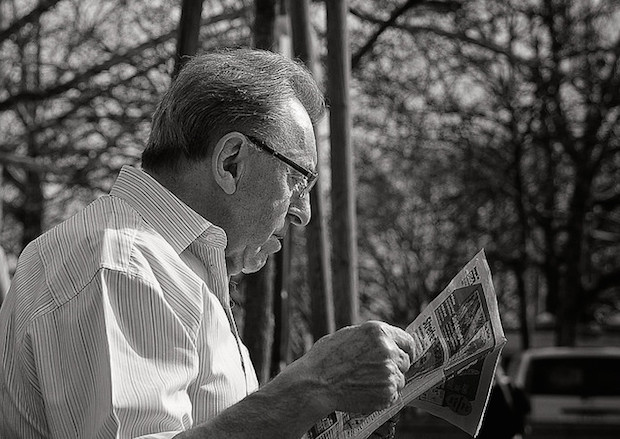I guess you read French Property News, Living France, A Place in the Sun magazines etc. I hope you even enjoy reading the Cle France Newsletters! but to really learn more about life and living in France a French newspaper can not be beaten.
Continuing our look at French Newspapers - Part 5
Welcome to our final installment in this series on French newspapers. Click the following links if you’ve missed any of the earlier posts: Part 1, Part 2, Part 3 and Part 4. I hope this has been an enjoyable and informative set of posts for you and I trust you will take advantage of some of the abonnements (subscriptions) I mentioned.
At the very least, I would encourage you to visit your newspaper’s website of choice on a daily basis. Not only will you learn about what is going on in the world but you will ameliorate your reading skills and no doubt expand your vocabulaire (vocabulary).
In part 1, we had an overview of the different sections found in a typical newspaper that will help you navigate its contents.
In part 2, we learned about Le Monde and Le Figaro.
In part 3, we looked at Le Nouvel Observateur and Libération.
In part 4, we looked at L’Express and l’Humanité - two popular journaux (newspapers) that grace the racks of most newsstands in France. Today we are lloking at Le Canard Enchaîné and La Croix.

Image by Thomas0847 on Flickr
To conclude this series we will be looking at two fascinating newspapers with a rich history. Much like the newspapers we discovered in previous posts, Le Canard Enchaîné and La Croix are not completely neutre (neutral) in their journalism but offer their lecteurs (readers) a unique angle on the news.
Le Canard enchaîné :
Le Canard enchaîné (The Chained Duck) is a French hebdomadaire satirique (satirical weekly) printed le mercredi (Wednesday). Founded in 1915, the paper often features breaking news about many affaires scandaleuses (scandalous affairs), a selection of humorous cartoons and numbers only huit pages (eight pages). The paper’s slogan “La liberté de la presse ne s’use que quand on ne s’en sert pas” (Freedom of the press only wears out when we do not use it) is a testament to its willingness to dig deep in order to uncover scandals and corrupt practices in politics and business.
Although the paper does not claim to be affiliated with any parti politique (political party), it adheres to an anticlerical ideology and supports the doctrine of antimilitarism. And in order to maintain its editorial independence, Le Canard is devoid of any annonces (advertisements).
You might be surprised when you visit le site officiel du journal (the newspaper’s official website) at lecanardenchaine.fr as you will find very little information. On the homepage, you will read “Mais notre métier, c’est d’informer et de distraire nos lecteurs, avec du papier journal et de l’encre” (But our job, is to inform and entertain our readers, with newspaper and ink). Absent are the traditional sections such as Politique, Culture, Économie, Société, etc. Instead you will find scans of the paper’s front page under Les Unes; short synopses of Les Dossiers du Canard enchaîné (The Files/Records of Le Canard enchaîné—a short magazine printed by the newspaper) under Les Dossiers; Informations légales (Legal information) and little else. The publication’s modus operandi has always been to reach its readers through its physical newspaper and it sticks to this strategy even in the 21st century by maintaining a very sparse website.
La Croix :
Un journal quotidien (a daily paper), La Croix (The Cross) began as un mensuel (a monthly) in 1880 and three years later became a daily. As you might have guessed by its name, La Croix is a newspaper affiliated with the Roman Catholic Church in France. It was never considered un journal religieux (a religious newspaper) per se, but rather un journal populaire (popular newspaper) with a middle-of-the-road agenda that was neither liberal nor conservative.
As the years went by, La Croix adopted a new look and a new format to reflect the changing times. Beginning in 1956, the crucifix that had been part of the paper’s header since its inception was omitted. Due to a steadily declining readership, le journal est devenu plus moderne (the newspaper became more modern) in the 21st century with a reorganization of the different rubriques (columns/sections), a new layout and a new design for its website.
Visit la-croix.com and you will find fewer sections compared to the websites of most other major newspapers. Because of the paper’s connection to the Catholic Church, you will find sections such as Religion, Famille (Family), Ethique (Ethics) and Solidarité (Solidarity) along with the more traditional Actualité (Current Events) and Culture.
Original text from the French Language Blog.
Blog submitted by: Alex at The French Property Network - Cle France.